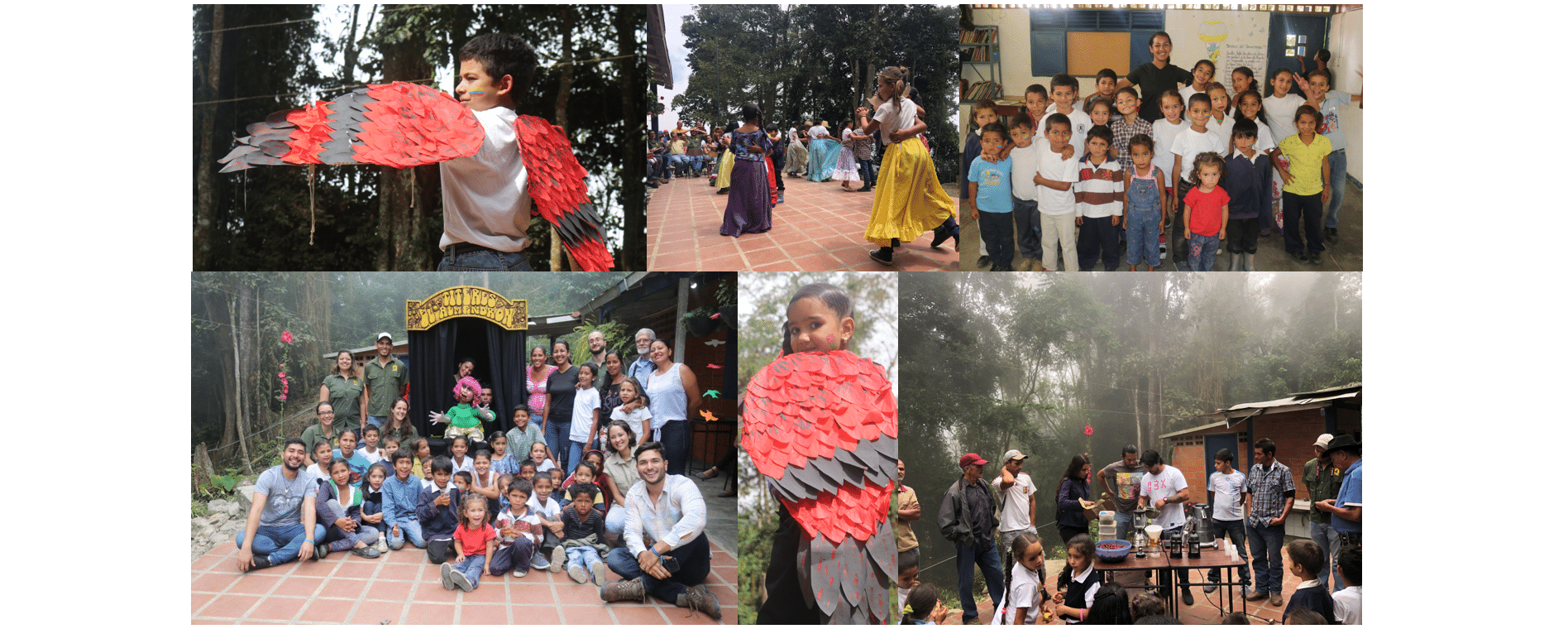Community-based conservation is always both challenging and inspirational. It was not going to be different for the conservation project “Birds and Coffee“. Even though it is challenging, the reward and satisfaction of witnessing farmers and local communities who are involved in the process thriving while being committed to their traditions, is worth it.
Birds and Coffee works to preserve the endangered tropical dry forests in northern Venezuela, which are home to the Venezuelan Red Siskin (El Cardenalito in Spanish) and hundreds of other native and migratory bird species. The project aims to do so through the implementation of agroforestry using crops such as coffee, banana and other fruit trees. The model allows for sustainable use of forests, while improving the income of producers, generating benefits for local communities and wildlife.

The Red Siskin or El Cardenalito.
Since 2016, the team led by Luis Arrieta, a passionate agronomist and coffee lover, started working with the communities of Piedra de Cachimbo and La Florida, which are located in northern Venezuela in the Cordillera de La Costa.

Tropical dry forests and shade-coffee forests in the Cordillera de la Costa, Venezuela.
Birds and coffee engages farmers by promoting agroforestry practices and shade-crops cultivation, mainly for coffee and plantain banana. We also assist farmers in the establishment of coffee and native tree nurseries, which can later be used in reforestation activities and the recovery of abandoned shade-coffee farms. So far, the project has trained and engaged more than 80 producers through workshops and technical support. It has helped farmers with implementing environmental-friendly farming techniques while achieving increased efficiency and better yields.
Producers are also taught about how to grow and process specialty coffee varieties. This allows them to access new and competitive markets where they have more chances of obtaining higher incomes.

The team sowing coffee plants (two left) and Luis Arrieta during the workshops (right).
The project also benefits biodiversity. Ornithologists recorded more than 230 resident birds and 8 important migratory bird species in the project area, such as:

In December 2019 we established the Civil Association of Agroforestry Producers – Piedra e ’Cachimbo and Florida (ACAFLO in Spanish) which supports the certification process of coffee farms. A major achievement!
Now, 39 production units (UP) qualified for obtaining organic certification under the standards of the United States Department of Agriculture (USDA-NOP) and the organic standards of the European Economic Community. Additionally, 13 of these 39 UPs obtained the Bird-Friendly Certification following the standards of the Smithsonian Institution. This represents a major opportunity that values the production of coffee and other agricultural commodities, while conserving habitat for biological diversity.

Mr. Alfredo Cárdenas, President of ACAFLO, Mariana Marcano and Luis Arrieta from Provita (from left to right).
We have celebrated two editions of the “Coffee Growers Day”, as part of the activities to promote the communities’ traditions. During the celebrations, the farmers and the families enjoyed a special day with games, traditional dances and coffee tasting.

“Coffee Growers Day” celebrations at Piedra de Cachimbo y La Florida.
By 2021 we aim to expand the project’s impact area to 400 hectares by adding new producers through model plots in neighbouring areas. We will bring to them the capacity building and technical assistance program that we have successfully implemented since 2017.
Our dream is to create a protected reserve in which the local communities can coexist with the vast biodiversity that inhabits the tropical dry forests in Venezuela, through promoting sustainable agroforestry practices.

The farmers and their families in Piedra de Cachimbo and La Florida.
Birds and Coffee is part of the Red Siskin Inititive (RSI) or Iniciativa Cardenalito, which is an international association working to preserve and restore wild populations of the Endangered Red Siskin (El cardenalito, Spinus cucullatus).
This blog is reposted from WildHub.

